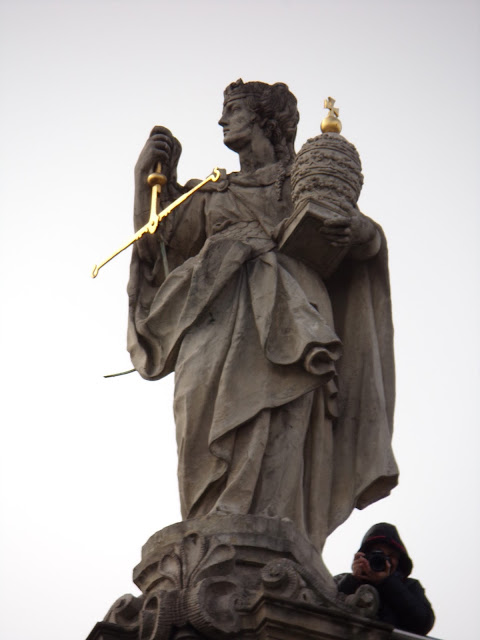Founded by the Jesuits in 1670, the magnificent Baroque main building of Wrocław University and the adjacent Church of the Blessed Name of Jesus that
stand today were built at the same time on the former site of a
derelict Piast castle after a land grant from Emperor Leopold. In 1811,
Prussia secularised all church property and took over administration of
the university. Prior to this the Austrian-Prussian war in 1741 saw the
campus transformed into a hospital, a prison and finally, in 1757, a
food store. The dying days of WWII saw the university library turned
into a makeshift HQ for the occupying Nazis. At the war's end the German
faculty were all but exiled, with the replacement professors arriving
from the University of Lwów forming the first Polish faculty to teach
here. The University still functions as an academic building, and past
professors include Alois Alzheimer (the man who gave his name to the
disease) and Robert Bunsen (who didn’t invent the Bunsen burner but
improved it to such a degree that it was named in his honour). Since the
start of the 20th century, the university has produced a remarkable 9
Nobel Prize winners and today over 40,000 students are enrolled with
9,000 graduating each year.
The first of the University Museum's two main highlights is undoubtedly Aula Leopoldina.
In true Baroque style, the ceremonial hall is a virtual explosion of
cherubs and swag. The painting on the ceiling depicts the apotheosis of
God's wisdom - reflecting the religious and academic mission of this
room and the Jesuits. The portraits ringing the walls depict the
founding fathers of the University. Some years ago four of them were
stolen and two have yet to be returned. Winding upstairs past the odd
exhibition and a line in the floor demarcating the 51st parallel - which
runs right through the building - your visit to the museum ends on the
terrace of the university's 'Mathematical Tower' which affords great photo opportunities and panoramic views of the Old Town and Odra River.











No comments:
Post a Comment